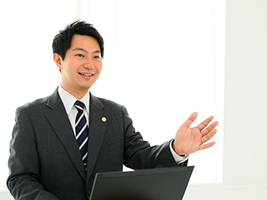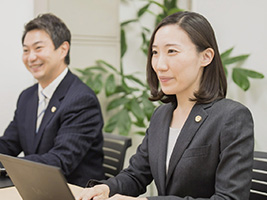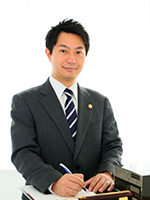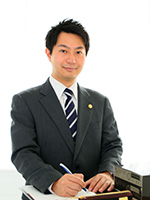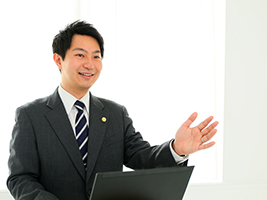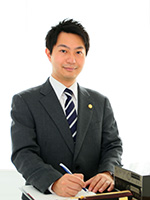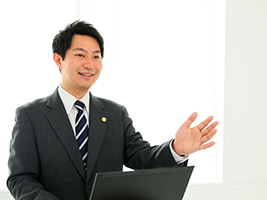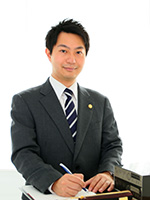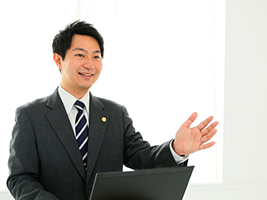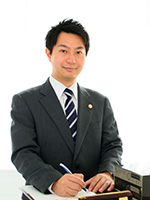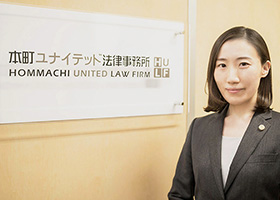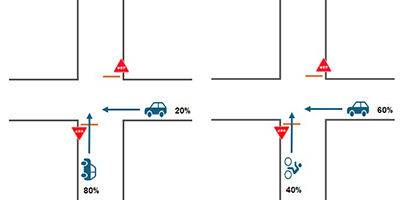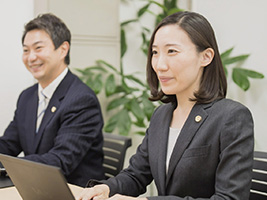Japan is home to an estimated two million foreign residents with mid- to
longterm visas. Many of them have established lives here, including jobs,
friends and family. When a foreign resident faces arrest, the implications
extend beyond the immediate criminal proceedings—they can also impact visa
status.
Navigating a legal system that may be very different from what one is accustomed
to can be challenging, especially when coupled with a language barrier.
In this post, we'll explain how police investigation during the pre-prosecution
stage works and the importance of avoiding prosecution.
➡ (Part 2 – Post-prosecution Stage)
1. Before Arrest
• Police investigation: During a criminal investigation, the police often reach out to suspects
for voluntary interviews. While participation is not obligatory, it is
generally advisable to comply politely rather than reject outright. Caution
is required when dealing with such requests, as in some cases, rejection
can prompt the police to proceed with an arrest.
Negotiating the timing of such interviews is possible, so it is crucial
to promptly seek legal consultation before the interview to receive guidance
on handling the process. Additionally, requesting an interpreter for the
interview is essential.
Although lawyers cannot be physically present during police interviews
(a notable difference that can baffle foreign residents accustomed to the
idea of having legal representation during interactions with law enforcement),
seeking legal advice is vital during this phase of investigation. In fact,
it is the most critical time to obtain proper guidance and ensure awareness
of relevant laws and customs.
• Written Statement: At the conclusion of a police or prosecutor interview, individuals may
be asked to sign a written statement. While it is acceptable to do so,
exercising extreme caution is crucial to ensure that the statement accurately
reflects the explanation given to law enforcement. If any errors or omissions
exist—even minor ones—individuals have the right to request amendments
before signing.
2. From Arrest to Detention
• Overview: A suspect can be arrested if there is probable cause to suspect their
involvement in a crime. In relatively minor crimes, investigations may
continue without an arrest. However, in other situations, arrest becomes
unavoidable.
Upon arrest, the police have 48 hours to conduct initial investigations
before forwarding the case to a designated prosecutor’s office. The prosecutor
then has 24 hours to file for detention. A judge assesses the necessity
of detention. If the alleged crime is relatively minor or lacks strong
grounds, the prosecutor may choose not to detain the suspect, allowing
continued investigation without confinement.
• Communication Options
(a) Embassy or Consulate Notification: Foreign suspects are asked whether they want their country’s Embassy or
Consulate to be informed. While the level of assistance varies by country,
diplomatic missions cannot represent individuals in criminal defense.
Often, individuals arrested while just traveling in Japan use their Embassy
to contact family members back home, leading concerned family members to
seek our firm’s assistance in visiting them in jail.
(b) Legal Representation: The only external contact permitted during this stage is with lawyers.
If you know a lawyer, you can request that the police contact them on your
behalf. Alternatively, you can ask for a “Duty Attorney” (Tōban Bengoshi),
who will provide a free initial consultation.
3. Detention
• Process and Duration: Once the prosecutor seeks detention, there is a high likelihood that the
judge will grant it (over 95%). Detention can last up to 20 days per charge
for most crimes (meaning that if there are multiple charges, the detention
period can be longer). During detention, daily interviews occur with police
and prosecutors. Simultaneously, investigative efforts intensify, as prosecutors
must decide whether to proceed with prosecution or release the suspect
within the 20-day window. Notably, bail is unavailable during the pre-prosecution
period.
The impact of being held in detention for 20 days can be significant—professionally
and personally—even if ultimately, they emerge without facing prosecution.
We strongly recommend consulting a lawyer to receive proper legal advice
from the onset.
• Visits: During detention, it is possible for someone other than attorneys to visit
the detainee. However, certain restrictions apply, such as the presence
of a police officer who understands the language used during visits. Therefore,
it is necessary to contact the police station where the detainee is being
held in advance.
In some cases involving possible accomplices or additional offenses, a
nocontact order may be issued, prohibiting visitors and all outside communication
except with attorneys during detention.
• Attorney Representation: The Duty Attorney mentioned above is only for the first meeting during
arrest. Subsequent decisions regarding legal representation must be made.
If financial resources are limited, individuals in detention qualify for
a pre-prosecution public defender, with the government covering attorney
fees (with some exceptions).
However, using a public defender has drawbacks for foreign suspects. For
example, individuals cannot select their preferred lawyer, and most public
defenders only speak Japanese. Consequently, interpreters are necessary
during meetings with the attorney, which can lead to less frequent visits
due to scheduling challenges. Additionally, communication involving interpretation
typically takes twice as long, resulting in significantly less direct interaction
with the attorney. And, unfortunately, we often hear that the quality of
interpretation is inadequate.
Furthermore, when a foreign resident is involved in a crime, the evidence
is typically in mother-tongue. Even when evidence could prove innocence
or mitigate charges, assessing its content may require translation which
takes time.
At our law firm, we have an attorney who is fluent in English. This allows
us to communicate directly with our English-speaking clients without an
interpreter. When clients provide evidence (such as emails) in English
that could benefit their case, we can thoroughly review it, treating it
like any other evidence.
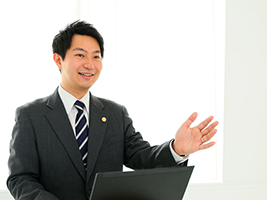
Japan’s conviction rate exceeds 99%, making the pre-prosecution phase critical
in criminal defense. The objective during this phase is to persuade prosecutors
to drop charges. Attorneys can gather and assess evidence, negotiate with
victims for settlements, talk to family or friends to secure a personal
guarantor (see Part 2 for details), etc.
In contrast to civil cases, most criminal cases require attorneys to be
geographically close so they can see the accused individuals where they
are detained. Therefore, it is advisable to contact a lawyer in your area
for assistance.
➡ (Part 2 – Post-prosecution Stage)
